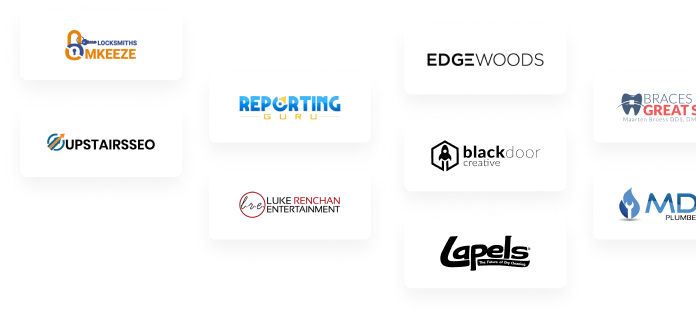Copyright © 2024 VentCube

Digital marketing agency

Tech service provider

Successfully delivered projects

Security certification


Custom website design is a full-cycle process. It begins with identifying a client's business goals and determining what will be on the site.

The design of responsive websites is flexible, meaning that it can respond to different devices, such as mobiles, tablets, and desktops.

SEO is an important aspect of a website. A good SEO optimized website will have good descriptions, titles, and tags.

Businesses that neglect security put their customers at risk. It is important to make sure that websites remain secure at all times.

Certain websites have certain qualities that will make a site stand out from the competition. We understand design and know the needs.

WordPress Website Design service are a group of professionals that work together to provide a quality website for their clients.

Completed Project
A website design and development has a set price based on many factors such as the size and complexity of a website. Prices can go from $500 to $5000, depending on many factors such as the number of pages, the complexity of the site, and the type of service needed.
Get a free quote today on custom website design with business requirements.
While we cannot reveal most of our projects due to NDA, we have plenty of customer reviews to give you a good idea of what to expect from our collaboration.




The first 3 steps of web design are research: defining the project, creating objectives, and analyzing the audience and competitors. The following 3 processes include wireframing the website: defining scope and functionality; designing a content structure; and creating a sitemap. The last 3 processes are design, branding, website building, and testing.

First, define the project's goals. Describe the website's idea, project, or service. What's the site's mission? How will the website generate direct money (online sales or subscriptions)? Even at this level, it's crucial to quantify success: how many visits or sales per month?

Second, know your audience. It's crucial to have a design and UX compatible with your audience's past consumer experiences. Who is this website for? What are their income, gender, and age? Who are they? Which websites do they browse and what else do they buy?

The third step in the web design process is to research your competitors. You need to know who your internet rivals are and what distinguishes your company or organization from theirs. What do you think they've done well and what do you think they could do better on their websites?

Website scope definition. After the initial investigation, you may establish the website's scope. What pages and functionality are the sites missing? Needs e-commerce, social networking, newsletter sign-up, or subscription features? How do you build them?

Content and structure. After defining the website's scope, design a wireframe to indicate how content will connect. What information and page links should be featured? At this point, images and text must be ready for the following step, when the magic happens.

Web design. As a web designer, this is one of my favorite steps. This step involves investigating other websites for inspiration—not to imitate their style, but to learn what my customer like and dislikes. To produce a design that reflects my customer, I must know them well.

Two-stage web coding. Once all the pages are set up and the customer approves them, we start coding. They may then be tested on mobiles, tablets, and desktops to prove interaction. Once this step is complete, the HTML pages are turned into the final WordPress theme.

Finalizing When the WordPress theme is ready, it's installed on the server. I link sites, provide navigation, and add content. Once the site is ready, it's crucial to build in theme testing time to iron out any remaining difficulties before launch.

Launch! The website may not be made public. Before researching, What fulfills any major announcements, I usually recommend a soft launch to get user input. Once everything is done, the website may be launched and the PR campaign can begin!
We make solutions that get results. Don’t take just our word for it — check some of the featured client projects to find out what VentCube has done for them to create the most value.
Anders Family Law Group is one of the best teams of family lawyers in the United States for their extensive experience in Family Law. We have created their UI design and website development. We aimed to design and develop a minimal and modern website.
The concept of the brand is based on Powerful Automotive CRM. We made our design modern, user-friendly and developed the website. Hence, We tried our best to keep the layout as simple as possible.
Pezzuco Construction specializes in erecting and renovating multi-million dollar commercial and residential structures, including large-scale re-developments, municipal projects, multi-building restorations, as well as complex infrastructure improvements.
Harbormasters is the most technologically advanced company in the floating dock industry with a perceptive commitment to blending modern marina layout design with proven construction practices.
Coastline Landscaping is a full-service landscaping company serving the areas of Rhode Island and Connecticut. Improve overall site architecture and navigation to enable easier browsing and a more frictionless experience.
There is a small amount of proof while you can see more at our portfolio page for web design, development & digital marketing work sample of us.

A well-designed website is crucial for lawyers to showcase their expertise, attract potential clients, and establish credibility in the legal field. The website should be professional, informative, and reflective of the lawyer’s brand and legal proficiency. This guide will focus on essential web design elements for lawyers, highlighting ease of use, functionality, and client engagement.
An effective website for a lawyer should incorporate:
Establishing a sense of trust through the website is key:
Incorporate features that enhance user experience and convenience:
Ensure the website is discoverable and accessible:
Offer a seamless and inclusive online experience:
The website’s visual design should align with the lawyer’s personal brand:
A well-designed website for a lawyer not only serves as a platform for professional representation but also as a vital tool in attracting and engaging potential clients, providing them with valuable legal information and insights into the lawyer’s expertise.
We’re here to enhance your good name with every WP site we build. We treat deadlines responsibly and offer swift, transparent communication and credible feedback.

VentCube is your development solutions partner. You can count on our proactive approach and expertise in WordPress and beyond, geared at one goal — making your business grow.

Clutch rates VentCube among the Top B2B Services providers in the USA. Our team is devoted to WordPress, staying on top of the global trends, and following best programming practices.
Regardless of your project’s scope, we’ll make sure to adjust to your in-house standards and deliver results that you can proudly associate with your brand.
VentCube is a tech ecosystem with a vast network of development houses in the USA and Bangladesh. We’re available during standard American working hours and ensure that no clash of cultures disrupts your projects.

Boost your online presence with VentCube, your trusted digital marketing agency. Let’s take your brand to new heights in the digital world. Contact us today and start your journey to online success!
Frequently Asked Questions

Our SEO services include comprehensive keyword research, on-page and off-page optimization, content marketing, and regular reporting and analysis to help our clients track the success of their SEO campaigns. We use advanced tools and techniques to develop customized strategies that align with our clients' specific goals and objectives.

At VentCube, we provide professional PPC management services to help businesses improve their online advertising performance and drive more leads and sales. Our team of PPC experts has specialized knowledge and experience in developing effective PPC strategies for businesses in various industries, including the automotive and transportation industry.
At VentCube, we provide professional social media marketing services to help businesses improve their online presence, engage with their target audience, and ultimately drive more leads and sales. Our team of social media experts has specialized knowledge and experience in developing effective social media strategies for businesses in various industries, including the automotive and transportation industry.
Our web design services for these industries are designed to help you grow your business by increasing the amount of traffic to your website, boosting conversions, and creating brand awareness.

When it comes to the automotive industry, digital continues to play an increasingly important role. As consumers shop online more and more, auto dealers and manufacturers need to find new ways to engage with consumers online. Digital marketing for the automotive industry is a good place to start.

Industrial companies struggle to market their products and services in a digital arena. This is part due to a lack of marketing resources, but largely due to a lack of understanding of the opportunities that exist. Industrial companies often ignore digital marketing because they perceive it to be too costly, or because “it doesn’t work”.

Digital marketing is the art of using the internet to craft your message and reach your ideal customer. For home improvement contractors, this simply means using a website, social media, search engine optimization (SEO), etc., to get your message and contact details in front of potential customers.

Franchisees should pay attention to the digital market, as it’s an effective way to reach more customers who are interested in what you do. The franchise system as a whole is a relatively established business, so digital marketing can help bring that offline presence into the digital age, where customers can find more information.

Beyond products, brand experiences, and brick and mortar locations, food and beverage companies are now increasingly leveraging digital marketing to connect with consumers and grow their business. A recent survey revealed 58 percent of U.S. consumers believe digital marketing is the most effective method for food and drink brands to reach them.

It is no secret that the financial services industry is one of the most competitive industries in the world. However, the finance industry has some unique challenges when it comes to digital marketing. This post discusses the unique challenges of the finance industry and how to overcome these challenges to reach your target audience.

If you’re in the education industry, then you’re already aware of the fact that digital marketing can help you reach your target audience, attract new customers, and generate leads. However, the truth is that you might not know exactly what digital marketing is and how it can help you. In this post, I’ll give you a brief overview of digital marketing, and then I’ll go into more detail about the benefits of digital marketing for the education industry.

As a Dealer or Distributor, you know that you need a marketing strategy that is going to get you results. That’s why we’ve put together this post, which offers a comprehensive guide to digital marketing that will help you gain more leads, increase conversions, and grow your business. t’s for those who are already in the industry and want to expand their business using digital marketing techniques.

Digital marketing is the most effective way to reach clients. This post provides an overview of the different types of digital marketing for professional services. Digital marketing is the fastest growing sector of the economy. It is estimated that by 2018, digital marketing will account for $1.5 trillion in annual revenue. We’ll cover the best tools and strategies to help you get started.

As an insurance company, you know the value of marketing. It can be expensive, time-consuming, and not always effective. But there is a way to leverage digital marketing to save you money, time, and increase your sales. In this article, we’ll show you how to use digital marketing to drive more traffic to your website, make more sales, and save you money.

We all know that digital marketing is an important part of the tourism and hospitality industry, but what does that mean? How do we use it to our advantage? This post explains how to use digital marketing to your advantage, with a focus on the tourism and hospitality industry. Digital marketing is a huge part of the tourism and hospitality industry. It is a great way to increase brand awareness, increase website traffic, and drive new bookings.

Digital marketing is one of the best ways to promote your company’s products and services. This post will introduce you to the best digital marketing tools that are designed for the tech industry. Digital marketing is one of the most popular marketing strategies used by businesses today. It involves using online marketing methods to promote a company’s products and services.

The digital marketing for nonprofits industry is a relatively new and growing field. The majority of nonprofits organizations are struggling to keep up with the ever-changing world of digital marketing. This post will provide a brief overview of what digital marketing for nonprofits industry is, what it can do for you, and how it can be used to grow your nonprofit organization.

If you are a healthcare professional, or a medical or health care provider, you need to know how to leverage digital marketing in order to get more patients in your practice and increase your revenue. With the rapidly growing world of technology, it’s easy to overlook the importance of digital marketing for the medical and healthcare industry.

The legal industry is a challenging one. It’s not only hard to find clients, it’s also difficult to convert them into paying clients. That’s why it’s important to have a digital marketing strategy that will help you reach and convert more of your prospects. In this post, we’re going to walk through how to create a comprehensive digital marketing strategy for a legal firm. The legal industry is one of the most competitive industries in the world.

Digital marketing is a great way to reach customers who have never heard of you or your company. The problem is, it can be hard to get started. If you’re new to digital marketing, you may feel overwhelmed by the sheer amount of options available. You may even feel like you don’t know where to start. This article will walk you through the process of creating a digital marketing plan for your retail business.

Today, recreation and entertainment businesses are more reliant on digital marketing than ever before. And yet, many of these companies are still using outdated marketing tactics that are simply not working anymore. As a result, they’re missing out on new customers, new revenue, and a better return on investment (ROI). You need to use digital marketing to reach the right customers.

Real estate is a great investment, but it’s also a very competitive market. So how do you stand out from the crowd? You need a marketing strategy that works. And that’s where digital marketing comes in. It’s the most cost-effective way to reach potential buyers and get them interested in buying your home. Digital marketing is a huge part of our lives. It’s how we search for information, find things to do, and even find people. But, it’s not just for the digital natives.

Heavy equipment companies are always looking for ways to improve their marketing strategies. But what about those of us who are just starting out? Do we really need to be using the same old tactics as the big players? The answer is yes! You’ll learn how to market your business effectively, how to get the most out of your digital marketing efforts, and how to build a brand that will last.

If you’re a local business owner or entrepreneur, it’s critical that you get in front of your target audience and start generating leads. In this post, I’ll walk you through a simple process to start generating leads right now. Digital marketing can help you gain new customers and improve your conversion rate—all while reducing costs and increasing profit margins.




VentCube is a full-service digital marketing agency provide various web services with trust & result oriented.
Copyright © 2024 VentCube